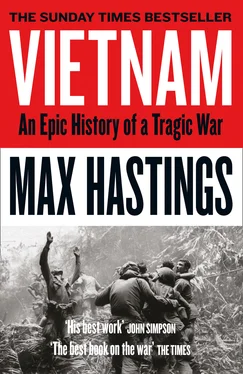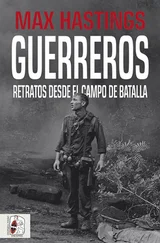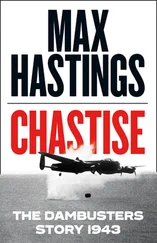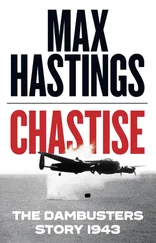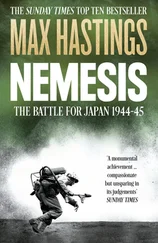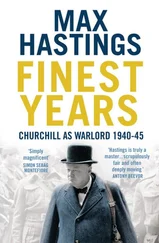Some Americans derived encouragement from Britain’s successes in suppressing nationalist guerrillas, though British officers were coy about acknowledging the ruthless means employed to achieve these. They behaved less brutally in their colonial wars than did the French, but their methods in Malaya, Kenya, Cyprus, Aden were not for sensitive stomachs. RAF aircraft broadcast chemical herbicides and later defoliants onto crops in guerrilla-dominated areas. In 1952 the British communist newspaper the Daily Worker published a photograph of a Royal Marine brandishing the heads of two Malayan terrorists, about which public distress did not abate when it was officially explained that these souvenirs had been recovered for identification purposes. There was plenty of bombing of villages. And somehow, the British contrived to seem to prevail.
The London government was uneasily and sometimes guiltily conscious of its status as co-chair of the original Geneva Accords, and thus dismayed by the rising number of advisers dispatched to Vietnam, in breach of the terms. In 1961 the British ambassador suggested that the US might get away with upping the number by a hundred, only to be peremptorily informed that eight thousand were coming. Prime minister Harold Macmillan, loyal as ever, agreed to make no fuss, and expressed relief that there were no plans to commit American combat troops. His people nonetheless urged the State Department to be discreet about the build-up, and thus had to swallow a new snub in December, when Washington said that it had decided not to be bound by some clauses of Geneva.
The British continued to vacillate about how far they themselves were willing to engage alongside the Americans. They retained a proprietorial view of South-East Asia; believed they understood counter-insurgency; devoutly wished for the communists’ defeat. They opposed a 1962 proposal for a conference to neutralise Vietnam, like Laos, because Diem’s position seemed so weak. Harry Hohler, British envoy in Saigon, wrote hawkishly in January: ‘[A]ny solution of the Vietnam problem that does not crush and eradicate the Viet Cong will simply hand South Vietnam over to the Communists,’ an outcome that he considered would be ‘disastrous to British interests and investment in South-East Asia and seriously damaging to the prospects of the Free World containing the Communist threat’.
Nonetheless, the British were underwhelmed by the Americans’ management of South Vietnam’s affairs, and bewildered by the strife between the CIA, State Department, US Army and successive ambassadors. The Americans, meanwhile, resented meddling on their patch – Ed Lansdale, especially, was impatient of advice from a bunch of ex-colonialist losers. He, like the Pentagon, was dismissive of a proposal favoured by the State Department, to invite the British Army to commit some training personnel. Instead ambassador Nolting told his UK counterpart that President Diem would merely appreciate some advice from Robert Thompson on police and organisational issues. At that time, with a Tory government in power at Westminster and Kennedy in the White House, if the Americans had requested military trainers they would probably have got them, which might have proved the thin end of an embarrassingly thick wedge. As it was, the war effort merely acquired Thompson. His experience, together with the advice of a small British mission, had one significant effect: the CIA acknowledged the importance for intelligence-gathering of a police Special Branch, which they persuaded the Vietnamese to replicate. Otherwise, while Thompson was sometimes granted audiences in Washington and Saigon, he exercised little influence on big issues.
That winter of 1962 there was a brief surge of optimism among Americans that the regime was doing better. The Australians agreed to open a jungle warfare school. Prominent pundit Denis Warner explained the rationale to his fellow-countrymen: ‘Why is Australia getting involved in the Vietnam war? Partly because we think a Communist victory there would threaten the rest of Southeast Asia and jeopardise our security and partly because of the need to convince the Americans that we are more than paper tigers … It’s a sort of life insurance cover.’ The premiums got steeper: in 1969 the number of Australians serving in Vietnam peaked at 7,672, of whom five hundred died.
While Washington strategy advisers came and went, one arbiter remained for seven years a constant. The man who would play a role in the making of America’s Vietnam tragedy second only to that of Lyndon Johnson was among the more unlikely knights at the court of Camelot. Robert McNamara was forty-four when in 1961 he first entered his huge Pentagon office, 3E 880. He never seemed to have been young and feckless: administration sophisticates whispered in mockery that he practised the Twist at home in front of a mirror, lest he embarrass himself when making a dancing debut at the White House. This former star of Harvard Business School and wunderkind boss of Ford Motors had risen from a humble Californian background by brainpower and unremitting, humourless toil. McNamara’s character recalls a line about a numerate British statesman: ‘He uses figures as if they were adjectives.’ When this former Eagle Scout took his loved ones hiking on weekends, he was alleged to slide-rule what his children and tiny wife Margy should carry in their rucksacks. He accepted the defence job because he was irresistibly attracted by the opportunity to exercise power. Outside the family, he was a cold man who could scarcely be called a moral one: in 1961 he endorsed the fiction of the strategic ‘missile gap’, and made shamelessly baseless attacks on his predecessor Thomas Gates.
McNamara’s office became a dynamo room: for programming a missile build-up; expanding the army in response to the Berlin crisis; promoting new weapons systems. During the October 1962 Cuban drama, it was McNamara who conceived the US Navy blockade. He seemed devoid of self-doubt, and believed that a good decision should also be a fast one. His obsession with control caused him to deplore loose talk: he waged war on military leakers, and sought himself to preside as the sole public voice of America’s armed forces.
McNamara told the Senate in September 1961: ‘There is no true historical parallel to the drive of Soviet Communist imperialism to colonize the world … [No dictator] has ever been so well organized, possessed so many instruments of destruction.’ He was unafraid of telling outright lies in the cause of countering the Soviet menace – a habit that would eventually destroy his reputation. Testifying to Congress, he reeled off data that was hailed as evidence of his extraordinary powers of recall: Lt. Gen. Fred Weyand, however, observed that many of the secretary’s ‘facts’ were simply wrong. Although a committed Cold Warrior, in the first year of the administration he opposed a penny-parcel commitment in Vietnam: ‘We would be almost certain to get increasingly mired down in an inconclusive struggle.’ Alternatively, if the US made a big troop commitment, ‘the struggle may be prolonged and Hanoi and [Beijing] may intervene overtly … Success will depend on factors many of which are not within our control – notably the conduct of Diem himself.’
But then McNamara changed his mind. In May 1962 he paid his first visit to Vietnam. Paul Harkins, the fantasist who commanded MACV, hosted the trip. The general was given an advance list of the defense secretary’s questions, so that he had time to frame plausible answers, founded on statistics such as McNamara loved, though wholly fanciful. Harkins asserted that American aid was empowering the Diem regime to defeat the communist insurgency, though even as the secretary was being briefed at Binh Duong, an ARVN convoy was attacked nearby, five men killed. While he toured the northerly base at Danang, the Vietcong blew up a troop train ten miles away, killing twenty-seven people and wounding thirty. McNamara told young UPI reporter Neil Sheehan, ‘Every quantitative measurement we have shows that we’re winning.’ He did not perceive that the ‘quantitative measurements’ were being pulled out of the air by Harkins, of whom Sheehan wrote later: ‘He willed himself to believe what he wished to believe and to reject what he wished to reject.’
Читать дальше
